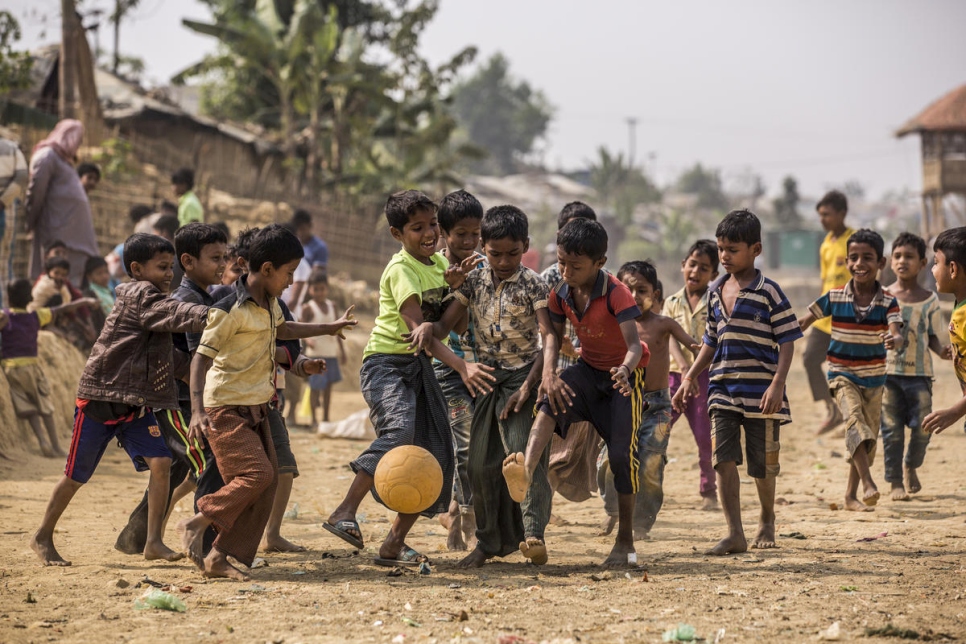UNHCR partners with FC Barcelona to bring the power of sport to displaced children
Football might be the world’s favourite game. But for children – especially those uprooted due to war, violence and persecution – it can also be a lifeline.
UNHCR, the UN Refugee Agency, along with its National Association in Spain, ACNUR Comité Español, FC Barcelona and the FC Barcelona Foundation have formed a partnership to harness the power of sport to help the millions of people around the world who have been forced to flee their homes, including children and young people.
“Displaced children are in dire need of support to rebuild and reconnect," said Dominique Hyde, UNHCR’s Director of External Relations. "Sport can play a vital role in helping them to improve their mental and physical well-being, develop skills to deal with stress and anxiety and connect to their communities.”
Over each of the next four football seasons, the Foundation will contribute at least half a million euros, both in cash and in-kind donations, such as sports equipment and technical expertise, to help refugees on four continents benefit from transformative power of sport. FC Barcelona’s teams will also wear the UNHCR/ACNUR logo on the back of their iconic jerseys, just under the number, in solidarity with refugees and to remind the world of their courageous plight.

UNHCR organized a football match for displaced and host community girls in Metuge, Cabo Delgado, northern Mozambique. © UNHCR/Martim Gray Pereira
More than 80 million people have been forced to flee their homes to seek safety, either across borders or within their own country. Having left their homes, possessions and social and family networks, they can be incredibly vulnerable, especially children. Some are separated from their families. Many have suffered conflict-related trauma or been exploited or abused.
With less than half of refugee children receiving formal education, it is also essential that those who are going to school – especially girls – have the tools they need to thrive. Sport can also give them the incentive they need to stick with their education. Refugee children who speak different languages or practice different religions can come together on the football pitch to share their passion for the game. The shared passion for sport can also unite displaced children with the communities that host them.
"More than a pastime, sport has the power to restore normalcy to lives torn apart by war, conflict or persecution."
Through UNHCR’s new partnership with FC Barcelona and the FC Barcelona Foundation, the organization will be able to increase refugees’ opportunities to participate in organized, developmental sport projects that integrate protection and education, helping them to stay safe and reach their full potential.
"More than a pastime, sport has the power to restore normalcy to lives that have been torn apart by war, conflict or persecution, and to help children and young people to heal and rebuild their lives,” Hyde said.

